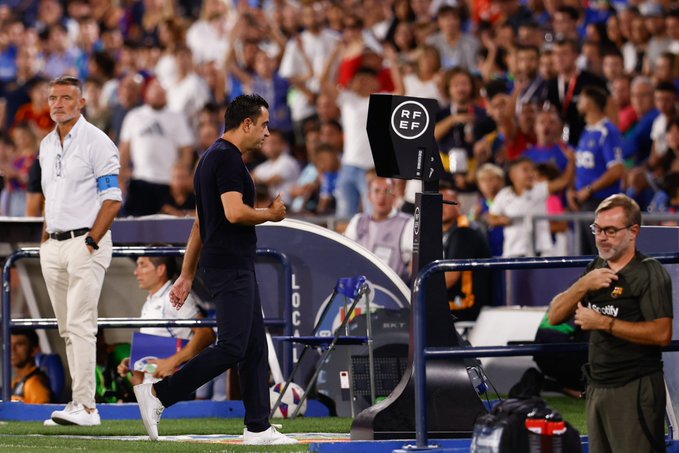There is a rarely a day of football in the top leagues across Europe that goes by without controversy pertaining to a VAR intervention. The introduction of video reviews of decisions has been met with mixed reactions, and the international refereeing body, IFAB, have been trialling a fresh change to the protocol.
A number of rule changes have been proposed and trialled by IFAB, with FIFA also pitching in fresh ideas. The latter, led by Arsene Wenger, have been keen to adjust the offside law to give forwards more of an advantage when it comes to beating the defensive line, although this will not be voted on this time. Meanwhile there has also been some suggestion that IFAB could move to a system where coaches are allowed to challenge decisions a limited amount of times per game.
IFAB considering change to sending off protocol
As things stand, IFAB rules dictate that only straight red card decisions, be it potential or already given, can be reviewed by the VAR, and recommended to the referee. Cadena Cope report that they are now considering a change that would allow the VAR to intervene in the case of sending offs for second yellows too. IFAB will hold a summit on the 20th of January in London, where the change will be voted on.

Significantly, Olympiakos manager Jose Luis Mendilibar registered his disdain after midfielder Santiago Hezze was sent off for a second yellow, when his hand lightly brushed Barcelona midfielder Marc Casado. Most were in agreement that it was not worthy of a second yellow, and the game was fundamentally altered as a result.
Pros and Cons of potential change
Clearly, this would allow for more scope to correct wrong decisions, which is ultimately the purpose of VAR. Logically, it follows that given it has the same impact as a straight red, a double-yellow should also be reviewable.
However one of the main complaints about VAR’s introduction is that it has increased the number of chances for referees to make mistakes, and reduced their margin for error, while also impacting the spontaneity of the game. This would mean more intervention, and more stoppages, impacting the experience of the game.